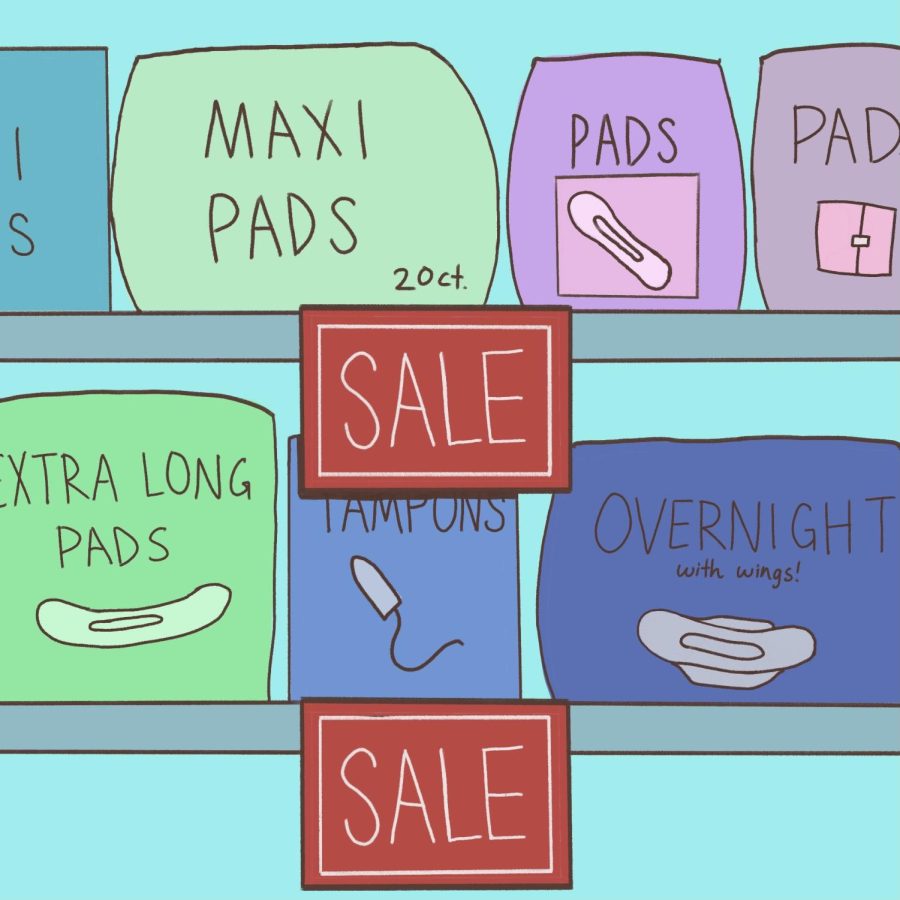CVS reduces period product prices, absorbs tax to combat period poverty
October 24, 2022
Since Oct.13, CVS Health reduced the price of their branded period products by 25% and will cover the taxes on menstrual products in Texas and other states, according to an Oct. 11 announcement.
In the United States, the average person spends $20 on period products per menstrual cycle, according to the National Organization of Women. In addition, menstrual products are not exempt from sales taxes in Texas. The combination of the cost and additional taxes make period products unaffordable for many. According to a study published in the Obstetrics & Gynecology research journal in 2019, about 64% of low-income women could not afford period products.
“It’s a really important equity issue that’s really underappreciated in this county,” said Joanne Armstrong, vice president and chief medical officer of Women’s Health and Genomics at CVS Health in a panel discussion. “Period poverty really influences the way that girls and women and others show up in life.”
CVS will also price all gendered products such as razors equitably to combat the pink tax, in which products marketed towards women cost more. They also will offer menstrual, contraception and menopause services through their MinuteClinic, according to the announcement.
Student Government’s Women’s Resource Agency promotes gender equality on campus through actions such as working with organizations to put free period products in campus bathrooms, said the agency’s co-director Celine Erkan. The agency hopes to expand the initiative to all bathrooms because not all people who menstruate are women, Erkan said.
“To put a tax on (period products) that cisgendered men don’t have to pay in any of their products, I think it definitely promotes inequality because it allows for people who are menstruating to have to spend that extra money that some people don’t have,” said Erkan, a government and sociology sophomore.
UT alumna Fatoumata Diallo co-founded the Women’s Relief Initiative at UT in 2018. Now a board member for the nonprofit, she helps provide period products and education to people who need it both in Austin and globally. People lacking menstrual products find it harder to go to school or work, which prevents them from reaching their full potential, Diallo said.
“(It also) insinuates that periods are not an important topic of discussion,” Diallo said. “The women see it as something that is limiting and of no value.”
Erkan said she spends about $192 a year on period products before taxes. She said removing taxes on menstrual products will help students on a budget.
“The costs of period products add up a lot,” Erkan said. “Getting rid of the tax on menstrual products just allows students to save money and allows those who were previously not able to afford period products, the ability to.”
College students in particular suffer from period product prices because of a lack of concrete income, Diallo said.
“It’s a radical step forward for a nationwide retail company to be able to do something,” Diallo said.
CVS’ goal is to remove barriers to women’s health, such as cost and accessibility, Armstrong said.
“In a societal frame, women have much more challenges accessing health care,” Armstrong said. “I think everyone deserves a fair chance to obtain their optimal health.”




